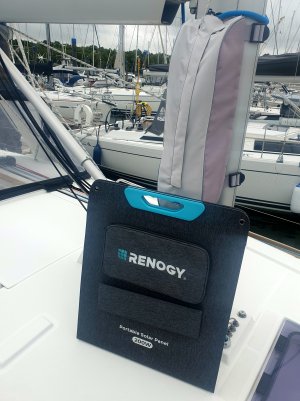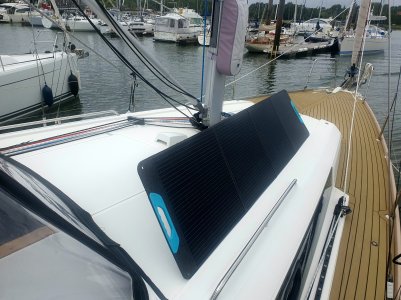wonkywinch
Well-known member
I bought a Renology 200W folding panel to charge my ePropulsion Spirit tender motor (via the optional solar charger from ePropulsion). Is it worth spending extra money on an MPPT controller and feed into the (lead acid) house system when not being used for the outboard?
A 2016 Beneteau with Cristec charge controller for alternator/shore power into lead acid engine, thruster and two parallel 80AHr (12v) house batteries. It's wired via a NASA battery monitor so, as Paul suggests, I could wire the correct side of the shunt but I wondered if it's worth buying an MPPT controller and using the 200 watt panel to top up the domestics?
We do anchor a fair bit but get into the habit of an hour running the engine in the morning to charge batteries and heat the water.
Question only prompted by looking out the window for the second week running and seeing decent sunshine here on the south coast of the UK.
A 2016 Beneteau with Cristec charge controller for alternator/shore power into lead acid engine, thruster and two parallel 80AHr (12v) house batteries. It's wired via a NASA battery monitor so, as Paul suggests, I could wire the correct side of the shunt but I wondered if it's worth buying an MPPT controller and using the 200 watt panel to top up the domestics?
We do anchor a fair bit but get into the habit of an hour running the engine in the morning to charge batteries and heat the water.
Question only prompted by looking out the window for the second week running and seeing decent sunshine here on the south coast of the UK.


